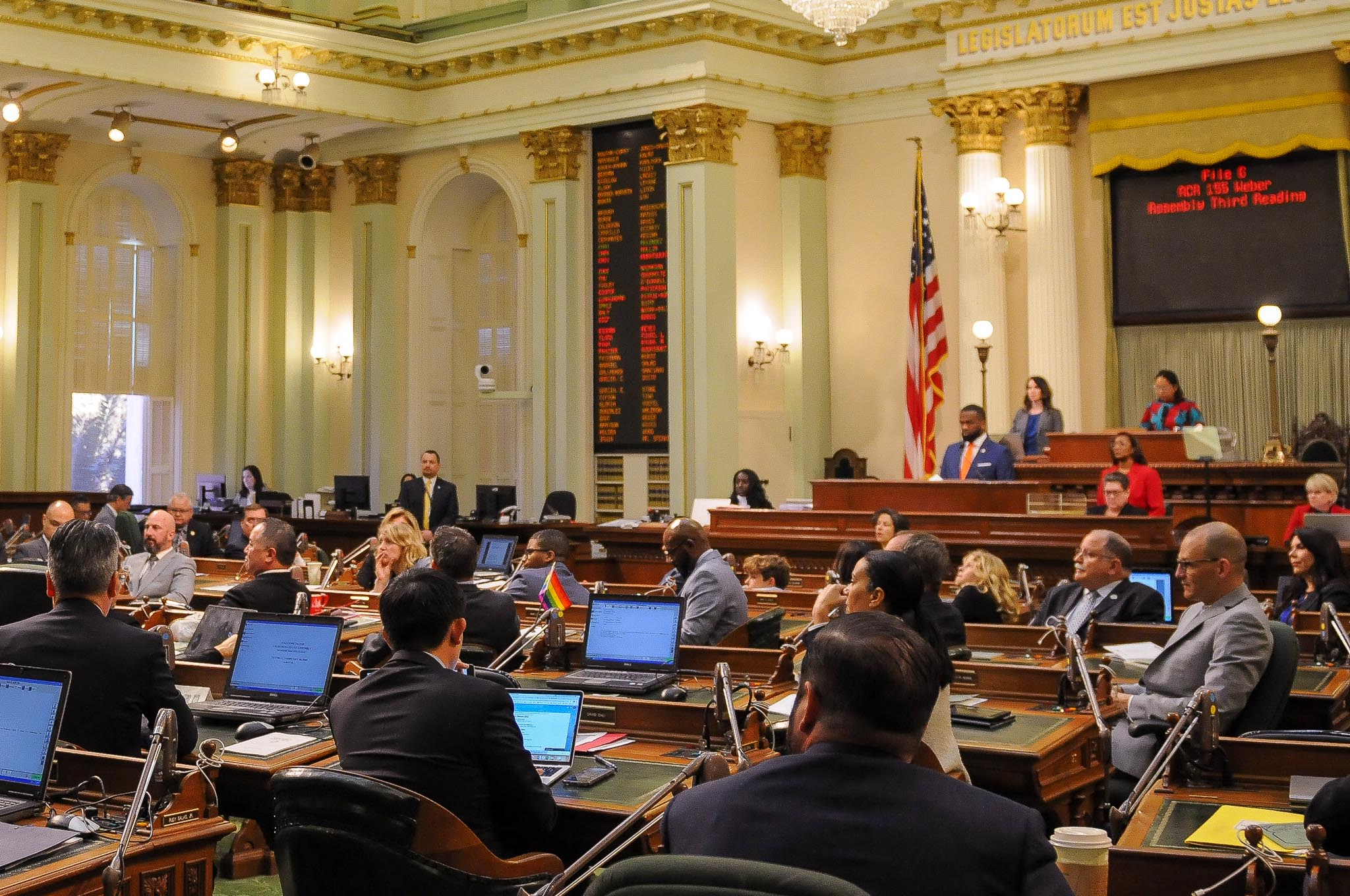
Senator Steven Padilla (Photo: sd18.senate.ca.gov)
Two AI Bills Introduced In California Senate
Bills would add guardrails, promote AI growth
By Evan Symon, January 5, 2024 2:45 am
Two bills designed to both expand AI research in California as well as a new framework for the state in dealing with AI companies were introduced in the state Senate on Wednesday.
The first bill, Senate Bill 892, would specifically require the Department of Technology to establish safety, privacy, and nondiscrimination standards relating to artificial intelligence services. Any public contract for artificial intelligence services would be prohibited from being entered into by the state unless the provider meets those standards. If passed, the bill would go into effect in August 2025.
The other bill, Senate Bill 893, would require the Government Operations Agency, the Governor’s Office of Business and Economic Development, and the Department of Technology to collaborate to establish the California Artificial Intelligence Research Hub in the Government Operations Agency. Under SB 893, the hub would serve as a centralized entity to facilitate collaboration between government agencies, academic institutions, and private sector partners to advance AI research and development that seeks to harness the technology’s full potential for public benefit while safeguarding privacy, advancing security, and addressing risks and potential harms to society.
According to the author of both bills, Senator Steve Padilla (D-San Diego), SB 892 and SB 893 would help advance California’s economy with the growth of AI companies, as well as create an “ethical framework” for AI service providers contracting with the state.
“AI holds both enormous promise and challenges for our economy and society,” said Senator Padilla in a statement on Wednesday. “Trusting tech titans to act responsibly, we completely abdicated our responsibility to create safeguards for social media and are now paying the price. We cannot repeat that disaster by allowing a handful of tech billionaires to operate AI without oversight, accountability, or restraint.
“The public has been left vulnerable to the dangers AI poses because of congressional failure to act and the regulatory desert they’ve created. We cannot wait for Congress to overcome their dysfunction, so California must step in and step up to lead.
“We are proud of California’s heritage as a center for technological vision and enforcing ethical, safe standards on this technology is in concert with those values, not in opposition. Companies will continue to expand on the capabilities of the science, while California will use its market power to create the norm for responsible and ethical AI development. But we cannot allow a few monopolies control the future of AI. This is a public good that must benefit all in our society, and we must make public investments to prevent a few billionaires controlling our future.”
Two new AI bills
Supporters of the bill, including many tech representatives and AI experts, said that the bills strike a perfect balance of creating both guardrails for AI development, as well as encouraging development at the same time.
“AI is being developed in a regulatory vacuum, with insufficient oversight and guardrails,” explained Loyola Law school and AI application law expert Professor Karl Manheim. “Congress has been inexcusably silent when it comes to both promoting AI as an engine of innovation and protecting society from its risks. Just as California has lead the nation in protecting individual privacy, Senator Padilla’s bills will put California in the vanguard in AI development and safety.”
While no opposition to the bills have yet to be formed, many expected that there is to be significant backlash coming forward, especially in regards to the passage of the bills.
“Both together, eh, it isn’t bad,” added tech consultant Wayne Kraft to the Globe. “People want AI companies to grow in California to help with the economy and provide good jobs, and at the same time, people want some limits on AI and it for the be watched closely because of a lot of concerns over it. These bills don’t have everything, but it is a start.”
“The big concerns here is that these are separate bills and that they can be amended a lot in the coming months. If one is passed and the other isn’t, it either stifles companies even more or it allows these companies to grow in ways we can’t observe clearly. And if one is passed with significant amendments limiting the power of the bill then, hoo-boy, do we have problems. This isn’t a guaranteed package deal and it needs to be. There should be something said about how if one bill doesn’t go forward, the other will be pulled or something. We need to be cautious about these bills. He said in his announcement that this is a package, but we’ve heard that before too on other bill packages.”
More on SB 892 and SB 893 will come out soon.
- Bill to Require Law Enforcement Disclosure if AI Was Used To Help Write Reports - August 7, 2025
- Gov. Newsom Files FOIA Request To ‘Expose True Cost’ Of L.A. Federal Troop Deployment for Anti-ICE Riots - August 6, 2025
- California Redistricting: How Newsom’s Plan Will Demolish Hard Fought GOP Gains - August 6, 2025





“People want AI companies to grow in California to help with the economy and provide good jobs” said tech consultant Wayne Kraft to the Globe. Isn’t eliminating jobs one of the major driving factors behind AI?